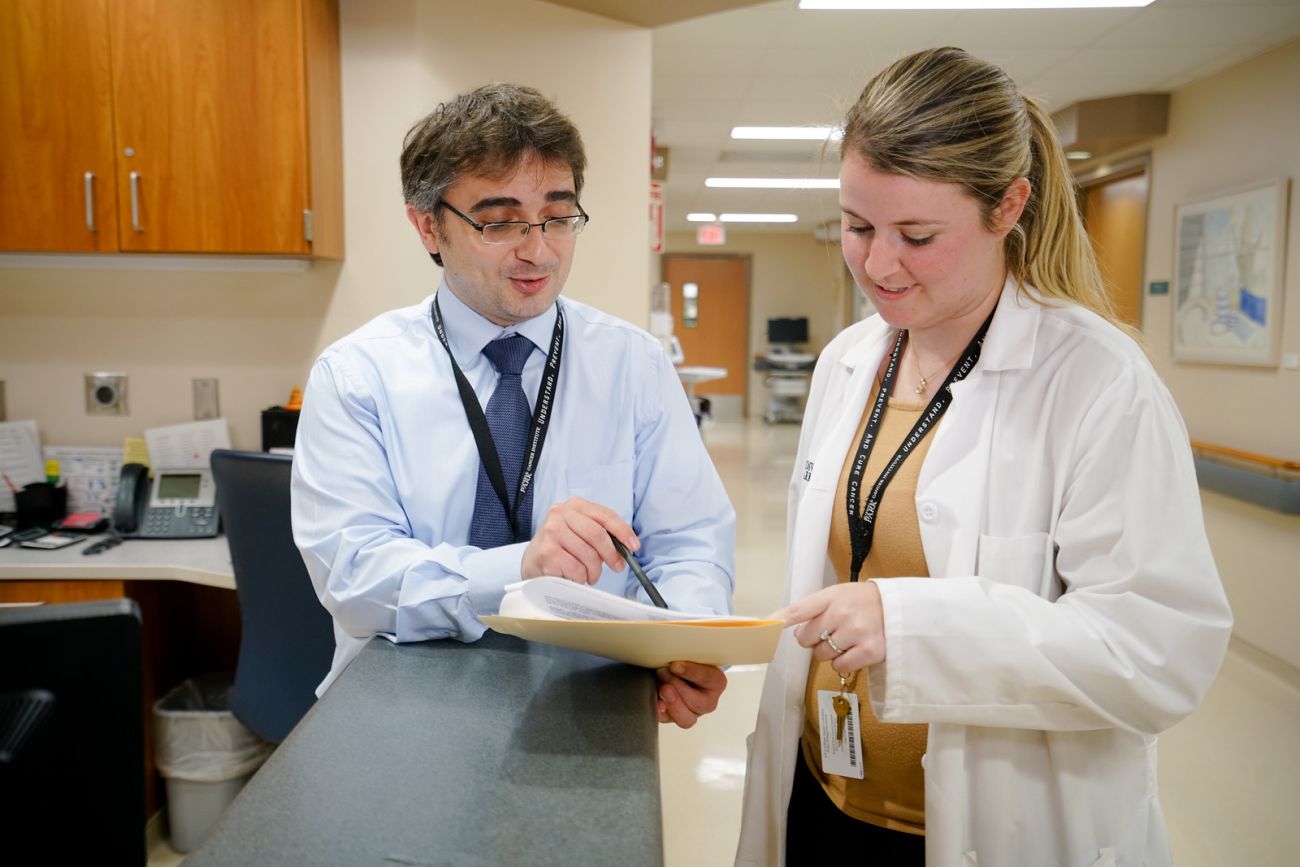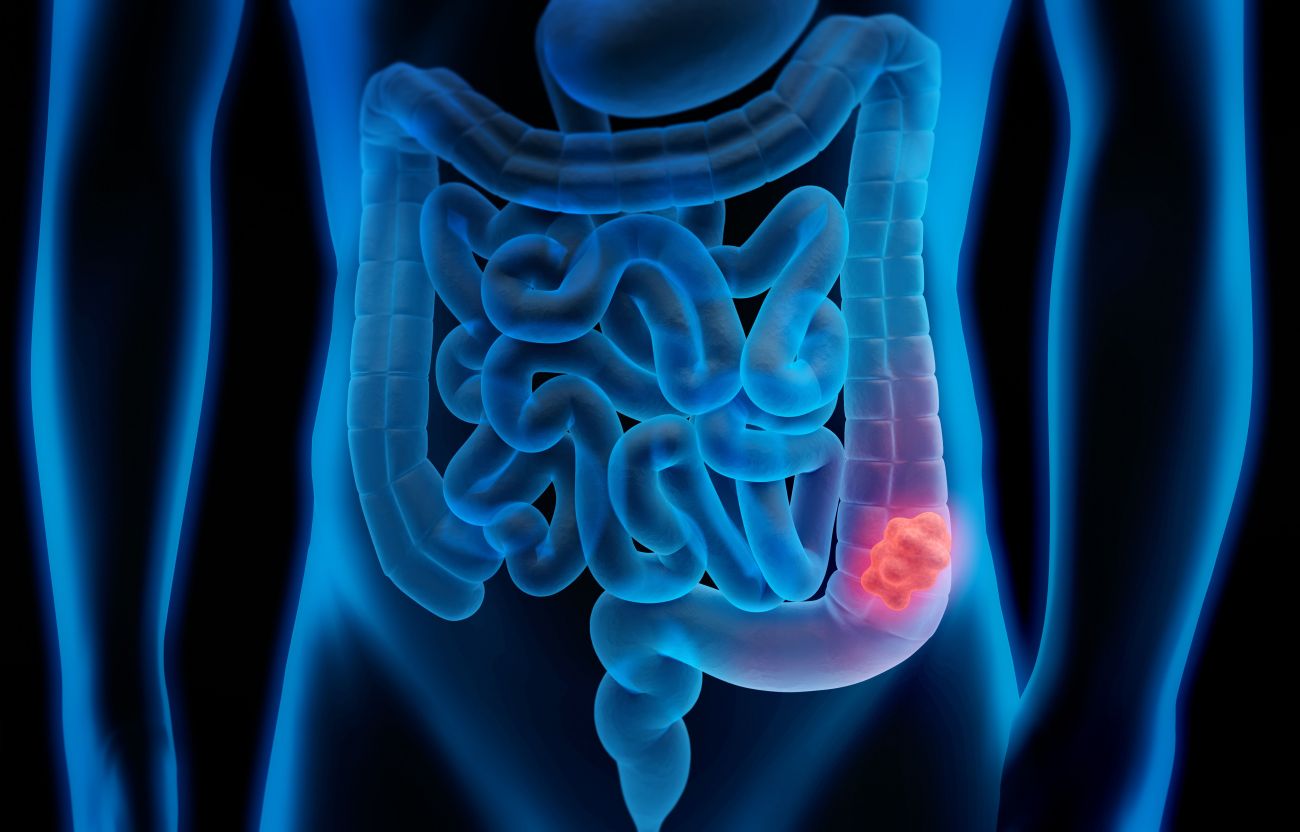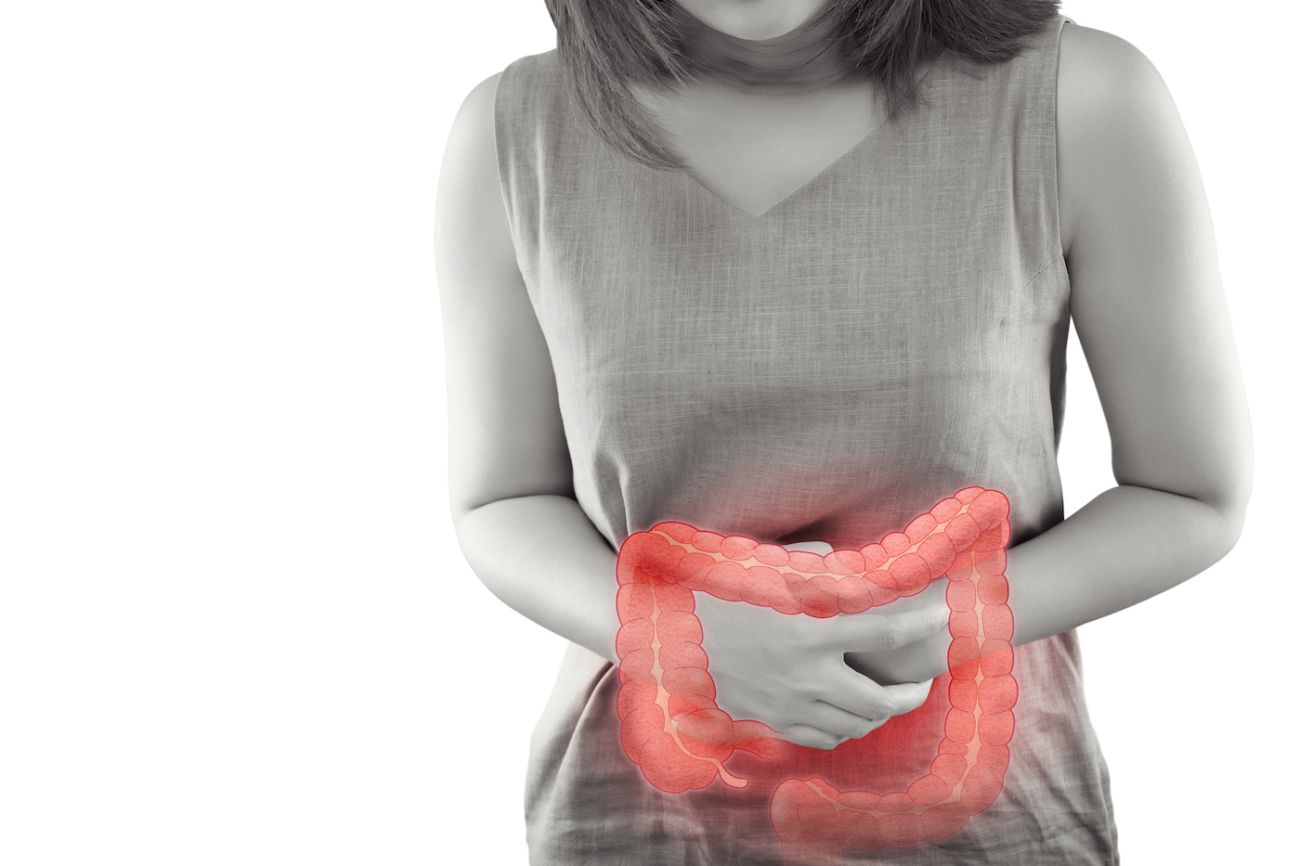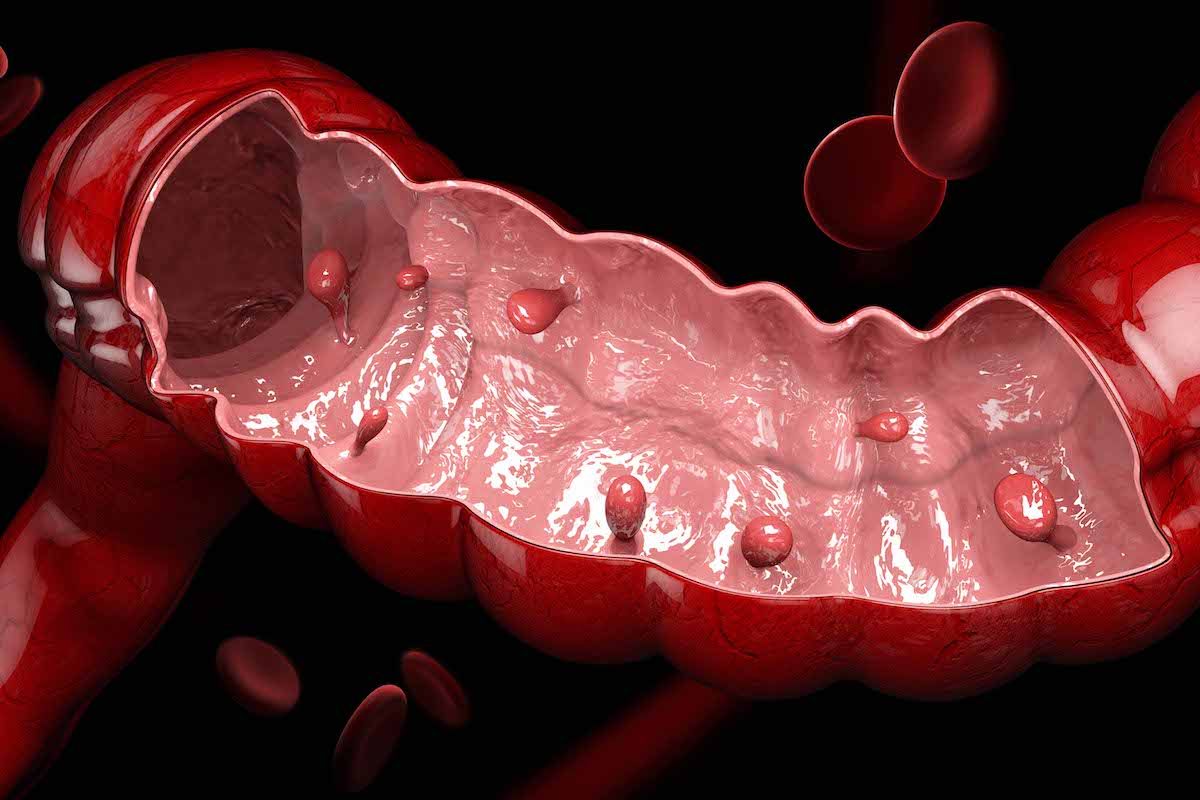What causes colon cancer?
Colorectal cancer develops when the DNA inside the cells lining the colon or rectum changes or mutates in a way that leads to rapid and uncontrolled cell growth. As these abnormal cells multiply and clump together, they form a tumor.
Some of these mutations occur on certain genes that can be inherited, however, most often the mutations that lead to cancer happen during a person’s lifetime as a result of environmental or lifestyle factors. Talk to your doctor about starting colorectal cancer screening earlier than age 45 if you have the following risk factors:
- History of colorectal polyps
- Family history of colon cancer, especially among first-degree relatives (parents, siblings or children)
- Certain inherited conditions, such as Lynch syndrome, or MYH-associated polyposis
- Familial adenomatous polyposis (FAP), an inherited condition in which numerous polyps form on the inside walls of the colon and rectum
- Personal history of colorectal cancer or cancer of the ovaries, uterus, breast or genitourinary tract.
- Inflammatory bowel disease, irritable bowel syndrome, ulcerative colitis or Crohn’s disease
- African American or Native American ethnicity
Other risk factors associated with colorectal cancer include:
- Smoking or tobacco use
- Physical inactivity
- Heavy alcohol use (defined as more than two drinks per day for men; more than one drink per day for women)
- Diet high in animal fat (especially red and processed meat) and low in calcium, folate and fiber
- Obesity
- Excessive exposure to certain chemicals, such as chlorine or asbestos
Is colon cancer hereditary?
Only a small percentage of colorectal cancers are caused by gene mutations that can be inherited. However, if you have one of these genetic conditions, your risk for colorectal cancer increases significantly and you should pursue a specialized screening and surveillance plan offered through Roswell Park’s High-Risk Colorectal Cancer Program. The most common inherited mutations that cause colon cancer include:
- Lynch syndrome. This gene mutation, which accounts for about 2% of all colon and rectal cancers, is passed down through families and greatly increases the risk of developing colon and other types of cancer at a younger age.
- Familial adenomatous polyposis (FAP). This rare mutation causes hundreds of polyps to form in the colon and rectum. Left untreated, the condition leads to early development of colon cancer — before the age of 40.
- MYH-associated polyposis. This genetic mutation also leads to the formation of many polyps in the colon and rectum.
High-Risk Colorectal Cancer Program
Roswell Park offers a specialized screening and surveillance program for those at high risk for developing colorectal cancer. Our program involves a physical examination, focused medical history and personalized risk assessment to help determine your options for early detection or prevention of colorectal cancer, which may include:
- genetic consultation and testing
- periodic screening tests
- preventive treatment options such as surgery or chemoprevention
- guidance for screening your family members
Am I high risk?
You may be considered at high risk for developing colorectal cancer if your personal or family history includes any of the following:
- a colorectal cancer diagnosis before age 50
- 10 colon polyps that are precancerous or adenomatous type
- more than 20 colon polyps of any type
- rare types of colon polyps such as hamartomatous or juvenile
- colon polyps (precancerous or adenomatous type) before age 40
- a known hereditary genetic condition, such as Lynch syndrome, familial adenomatous polyposis (FAP) or MYH-associated polyposis



